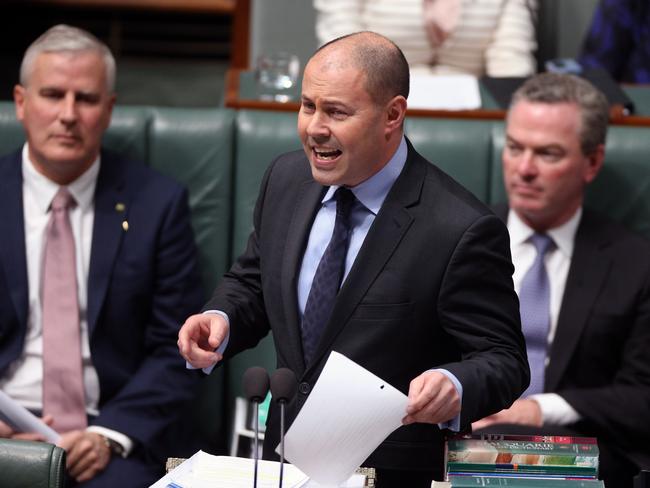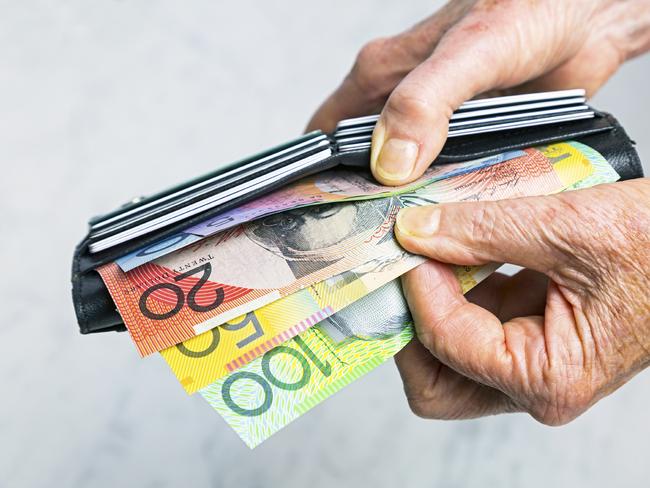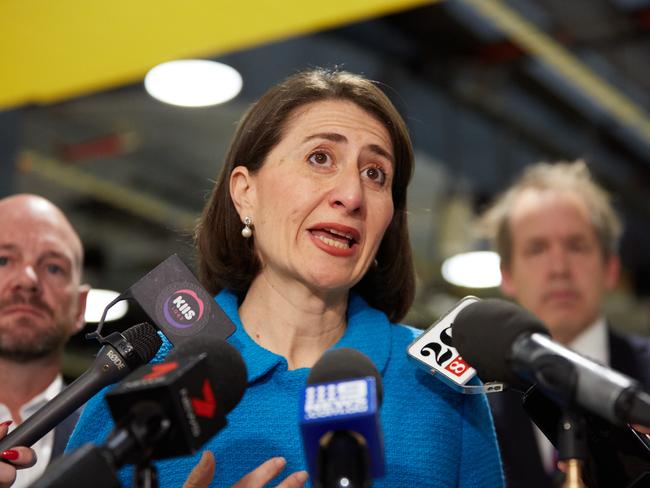Energy COAG: $550 household power bill saving at stake in NEG showdown
STATE and territory energy ministers have agreed to take a plan to reduce the average Australian household power bill to ‘the next stage’ after meeting federal minister Josh Frydenberg today.
National
Don't miss out on the headlines from National. Followed categories will be added to My News.
POWER bill relief of up to $550 a year is one step closer for Australian households after state and and territory energy ministers agreed to take the federal government’s National Energy Guarantee to “the next stage” today.
It’s estimated about $150 of that saving will come as a direct result of the NEG — if it actually eventuates — while the remaining $400 in savings is expected to come from new, largely renewable energy generation coming on line, according to modelling by the Energy Security Board.
The Labor states and territories did not give their full support for the NEG in its current form at today’s high stakes meeting in Sydney with Energy Minister Josh Frydenberg.
But the jurisdictions agreed to release draft legislation, which would establish the NEG, for a month of public consultation if the policy passes the Coalition party room on Tuesday.
ESB chair Kerry Schott said this was a “great step forward” after earlier this week warning that if the jurisdictions didn’t agree to the NEG in the next week or so, it would be “absolutely off the table until the middle of next year and at that point it’s probably gone”.
Labor states were concerned the NEG may not pass the party room with critics such as Tony Abbott and Barnaby Joyce speaking out against the policy in its current form.
The energy ministers will hold a phone hook-up on Tuesday afternoon to discuss the policy after the Coalition meeting.
RELATED: Tony Abbott’s NEG warning: ‘Aus is sleepwalking to disaster’
RELATED: Josh Frydenberg urges states to not play politics on NEG

Victoria is warning that it won’t give a final sign off on the NEG unless a series of 11th hour demands are met.
“The National Energy Guarantee needs more work and we have always been clear - we won’t sign up to any scheme that threatens Victoria’s renewable energy industry and the thousands of jobs it’s creating in our state,” Victorian Energy Minister Lily D’Ambrosio said in a statement.
The Labor state is demanding future emissions reduction targets be set by regulation to be reviewed every three years and the establishment of a transparency registry.
Ms D’Ambrosio said the state had received assurances on the registry.
In his opening remarks at the meeting today, Mr Frydenberg said: “Australian eyes are on this room today and what happens here matters to the outcomes around every Australian kitchen table and every Australian factory floor.”
He said the plan was a “blueprint for reform and a ticket to lower power prices” which was backed by experts and business, industry and consumer groups.
Earlier today, Mr Frydenberg said there was “an appreciation of the importance of the National Energy Guarantee” at an informal dinner gathering of the ministers last night but acknowledged there was “still a long way to go” before he won full support for the plan, which aims to drive down power prices, prevent blackouts and meet emissions reductions targets.
The Minister did not ask the states to sign up to a final plan today.
Instead, he called for the phone hook-up next Tuesday afternoon and for the draft legislation to be released for consultation.
Mr Frydenberg told ABC News Breakfast this morning he was “very confident” there would be strong support for the NEG at the party room meeting, despite Mr Abbott, Mr Joyce and other critics publicly speaking out against it.

The sticking point with the Labor states and territories, particularly Victoria, Queensland and the ACT, is that they want the NEG’s emissions reduction target to be higher than the government’s current target of 26 per cent.
They also want the target to be set by regulation, not legislation, which the federal government opposes.
Critics within the Coalition party room essentially want the opposite, warning there is too much focus on climate change and emission reduction targets when Australia should be focusing on driving power prices down.
Mr Abbott wants the government to withdraw from the Paris Agreement and its commitment to a 26 per cent target, despite having signed up to the policy himself when he was prime minister in 2015.
“Everyone in the party room is entitled to vote as they so choose in the Liberal Party, and we’ll always defend that right. But I would say to Tony, as I’d say to my other colleagues, as I say to the Labor states, the National Energy Guarantee is in the national interest,” Mr Frydenberg told the ABC this morning.
“We’ve listened to the independent experts.
“It’s been unanimously, universally backed by industry, business and consumer groups, and it has been supported by modelling showing that the average Australian household will be $550 a year better off as a result of this policy and the other work that we’re doing.”
Australia’s chief scientist Alan Finkel speak at the meeting today, as will the head of the Australian Competition and Consumer Commission Rod Sims.
Ahead of the meeting, NSW Premier Gladys Berejiklian urged all states to put aside their differences and agree in-principle to the NEG.

“We can argue about bits of the detail later on. What’s important is to sign up to the principles,” she told the ABC.
“The principles are securing energy, allowing investment for renewables, reducing the costs for households. These are positive things we want our citizens to have.”
ACT energy minister Shane Rattenbury said this morning he wanted the NEG in some form, but not in its current form.
Opponents to the policy within the coalition have indicated they will ask for changes on Tuesday to create what they’ve called the “NEG Plus”.
Mr Frydenberg has endorsed a ‘NEG plus’ that would see the government adopt the recommendations of the ACCC to provide Commonwealth support to new generators trying to enter the energy market.
In a sign that Tuesday’s partroom meeting won’t be smooth sailing for Mr Frydenberg, Mr Abbott has openly contradicted Mr Turnbull’s claim the coalition party room has already approved the NEG.
“It was not endorsed by the party room. He’s said that before, and I’ve disagreed with him before,” Mr Abbott said this week.
He believes the “bad policy” will be made worse after Mr Frydenberg meets his state and territory counterparts today.
“We shouldn’t ever be expected simply to rubber stamp the Labor Party’s policy which is what it will be if it comes to us from the state Labor ministers,” Mr Abbott said.
The ESB says the policy ensures reliable energy supply in tight periods, including after the planned 2022 closure of the NSW Liddell power plant.
-with AAP


